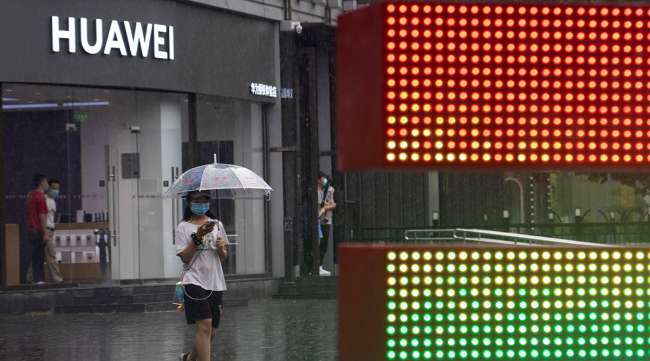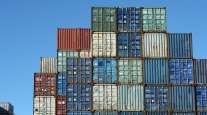Senior Reporter
Purge of Chinese Technologies Confusing, Rushed, Costly, Trucking Groups Say

[Stay on top of transportation news: Get TTNews in your inbox.]
Trucking and technology trade organizations said an interim rule requiring federal government contractors to locate and purge telecommunications equipment made by five Chinese companies is confusing and fails to give them time to complete searching their operations.
Most said they support the goals of the interim rule, a requirement included in Sec. 889 of the fiscal 2019 Defense Authorization bill. But they said they don’t understand some of the terms of the provision aimed at eliminating potential national security threats contained in Chinese systems, ranging from cameras and cellphones to GPS products and computer routers.
Compliance with the rule, which applies to all contractors doing business with the U.S. government, has a Sept. 30 deadline. Failing to purge their systems of “critical technologies” or seek a waiver could lead to civil or criminal charges, according to the rule outlined in a July 14 Federal Register post.
The five Chinese companies, believed to be potential hackers into U.S. intelligence and defense agencies’ information systems, are Huawei Technologies Co., ZTE Corp., Hytera, Hikvision and Dahua Technology. The provision also covers any subsidiary or affiliate of the entities.
Despite the impending deadline, the proposal said that contractors can ask for a one-time waiver on a case-by-case basis that will expire no later than Aug. 13, 2022.
“Today’s modern commercial motor vehicles are not the former 80,000-pound machines of only iron and rubber,” American Trucking Associations said in written comments. “Rather, they are sophisticated rolling platforms infused with a vast array of technologies and multiple computers that achieve extremely high levels of environmental compliance, efficiency, safety, security, communications, tracking and functionality. We cannot overemphasize the substantial impacts of Sec. 889 on all trucking logistics companies.”
UPS Inc. said: “Indeed, for many large contractors, the costs associated with ensuring ongoing compliance with Section 889 across the entire corporate family could outweigh the opportunities that come from the contracts held by the one legal entity that performs government work. Such additional compliance burdens and risks would create even higher barriers to entry and could prompt large organizations to shift their business away from government contracting.”
Section 889 Compliance by Transport Topics on Scribd
The nonprofit National Motor Freight Traffic Association, an organization with 500 motor carrier members specializing in the movement of less-than-truckload quantities of freight, agreed with UPS.
“Adding a requirement to review the prohibitions, research the source of all information technology products or services in their computer and telephone networks, remove any covered equipment, and complete the detailed disclosure would not be cost effective, nor practical in the short time period available between the issuance of the interim rule and its effective date for most carriers, who then would be forced to withdraw from the government transportation market,” NMFTA wrote.
The Professional Services Council, an advocacy group for the government technology and professional services industry, said it supports the goals of the proposed rule.
“Yet, we have serious reservations that this prohibition, and without necessary clarifications, this rule, will be implemented in a manner that achieves those goals,” PSC wrote. “Under the July interim rule, each company must independently determine which products, components of products and services are prohibited from the designated prohibited companies, including having to identify their subsidiaries and affiliates. This will be a time-consuming, burdensome and costly exercise.”

Home | Video | Heroes' Photo Gallery
Saluting the men and women of the trucking industry who kept America's essential goods flowing during the coronavirus pandemic.
Heroes: Peter Lacoste | Susan Dawson | James Rogers | Reggie Barrows | Kevin Cooper | Cesar Quintana Moreno
ATA estimated that it will take many months, if not well more than a year, for highly interconnected industries such as supply chain transporters to discover all covered components in their electronic inventory.
Huawei and its U.S. company commented that the interim rule is unreasonably vague due to the lack of clarity around the scope of “use,” and does not factor into its anticipated public costs associated with the discretionary “flow-down” of the requirement.
“Supply chain security is a growing concern for all industries, and it is a global one. Not a single company can seriously claim to be risk-free,” Huawei wrote. “Simply banning equipment from a particular vendor due to its country of origin is not an effective strategy for addressing supply chain risk, particularly given the global nature of the telecommunications equipment supply chain.”
Want more news? Listen to today's daily briefing:
Subscribe: Apple Podcasts | Spotify | Amazon Alexa | Google Assistant | More




